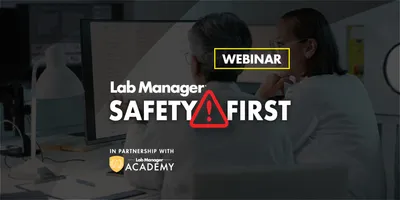In pharmaceutical quality control (QC), well-trained staff are not just an asset—they are a compliance necessity. Regulatory authorities such as the FDA and EMA expect documented, ongoing, and role-specific GMP training. Gaps in training can lead to compliance failures during audits, batch rejections, or even warning letters, particularly when distinguishing between GMP vs Non-GMP practices becomes unclear.
Effective GMP training not only meets compliance expectations but also prepares your staff to operate confidently within regulated environments. In this guide, we break down key GMP training requirements, illustrate what regulators expect, and provide actionable steps to build a compliant training framework. These insights are foundational whether you're preparing for inspections or aligning with international standards like those discussed in FDA vs EMA: Key Differences in GMP Regulations Every Pharma Lab Must Know and Understanding the Role of USP and EP Standards in Pharma QC: Ensuring Consistency and Compliance
Key GMP Training Requirements Defined by FDA and EMA
The FDA and EMA both require pharmaceutical manufacturers to establish and maintain comprehensive training systems for all personnel involved in GMP activities. While the core expectations are similar, implementation nuances exist:
- FDA Perspective: According to 21 CFR 211.25, employees must be trained in current GMPs and job-specific operations. Records of training must be retained for inspection and review. For example, a QC analyst working with HPLC instrumentation must be trained not only in general GMP but also in the lab’s validated method for that equipment.
- EMA Perspective: EudraLex Volume 4, Chapter 2, emphasizes continual training as part of a dynamic Quality Management System (QMS). Employees must receive initial and ongoing training that is evaluated for effectiveness.
Role-Based GMP Training for QC Laboratory Staff
Effective training programs must go beyond general GMP overviews. Different roles within a QC laboratory require specific content tailored to their job functions:
Role Training Focus | Examples |
QC Analyst | Laboratory controls, data integrity principles, test method validation |
QC Supervisor | Oversight responsibilities, deviation and CAPA handling, audit readiness |
Microbiologist | Aseptic technique, environmental monitoring, microbial limits testing |
Validation Staff | Qualification protocols, documentation of system and process validations |
For example, a microbiologist must be familiar with both the theory and application of EM techniques used in sterile environments, while a validation specialist must document IQ/OQ/PQ stages for new equipment installs.
Documenting and Evaluating GMP Training Effectiveness
Documentation is as important as the training itself. Regulators expect to see:
- Detailed training logs with signatures and dates
- Individual training records linked to specific SOPs or regulatory guidelines
- Change-control records noting when retraining was triggered
Evaluation goes beyond checklists. Common methods include:
- Periodic quizzes and open-book assessments
- Supervisor shadowing and sign-off
- Root cause analysis from CAPAs that trace issues to training gaps
For documentation protocols that hold up under scrutiny, explore Mastering Documentation and Record-Keeping for GMP Compliance: A Guide for Modern Pharma Labs.
Integrating GMP Training Into Your Quality Management System (QMS)
Embedding GMP training into your QMS ensures it's not just an isolated activity but a system-wide priority. This can be achieved by:
- Using training completion as a prerequisite for role certification or task assignment
- Automatically triggering retraining upon SOP revision approval
- Auditing training logs as part of internal and third-party inspection prep
These measures directly contribute to inspection-readiness. For strategies on how to incorporate training into your regulatory preparation efforts, review Preparing Pharma Labs for Regulatory Inspections: A Guide to Readiness and Compliance.
Considerations for Training in GMP vs Non-GMP Environments
Many modern labs manage both regulated and non-regulated activities under the same roof. In such hybrid spaces, training must clearly define boundaries to avoid cross-contamination of practices:
- Non-GMP staff may not require validated methods but must understand the constraints when collaborating with GMP areas
- GMP documentation protocols—such as contemporaneous entries and audit trails—must be emphasized where applicable
Learn more about the operational implications in GMP vs Non-GMP How Laboratory Professionals Can Navigate and Manage Dual Compliance Workflows.
Supplier Training and External Collaboration
Suppliers and external contractors that impact product quality must meet the same GMP training standards as internal staff. This includes:
- Confirming that contract testing labs have received training on your method-specific SOPs
- Documenting qualifications of consultants performing validation or data reviews
- Auditing supplier training logs as part of the qualification process
Integrating training oversight into your vendor management system aligns with best practices in Mastering Supplier Qualification and Management in GMP Environments: A Practical Guide for Laboratory Professionals.
Final Thoughts: Making GMP Training a Pillar of Compliance
GMP training is not a one-time activity—it’s a continuous improvement process embedded within the culture of pharmaceutical quality. It reduces human error, streamlines audits, and ultimately protects product integrity.
Forward-thinking labs not only ensure compliance through proper documentation and assessments but also foster a learning environment that prioritizes regulatory excellence. Don’t forget to incorporate harmonized standards such as USP and EP into your curriculum, as described in Understanding the Role of USP and EP Standards in Pharma QC: Ensuring Consistency and Compliance.
Frequently Asked Questions (FAQ)
What is required for GMP training compliance in pharma QC labs?
GMP training compliance requires documented, role-specific training for all personnel involved in GMP activities, as well as periodic evaluations and updates based on SOP or regulatory changes.
How often should GMP training be refreshed?
Training should be refreshed at least annually or whenever there are updates to SOPs, guidelines, or regulations. Refresher training helps maintain staff readiness and ensures inspection preparedness.
Do supplier staff need GMP training too?
Yes. Contractors, consultants, and third-party labs engaged in GMP-related work must be trained or qualified in relevant GMP principles. This should be verified as part of supplier qualification protocols.
How does GMP training differ between GMP and non-GMP environments?
GMP training is stringent and documentation-heavy, while non-GMP training may focus on research protocols. Employees should be trained to clearly distinguish between regulated and non-regulated processes to prevent compliance risks.














